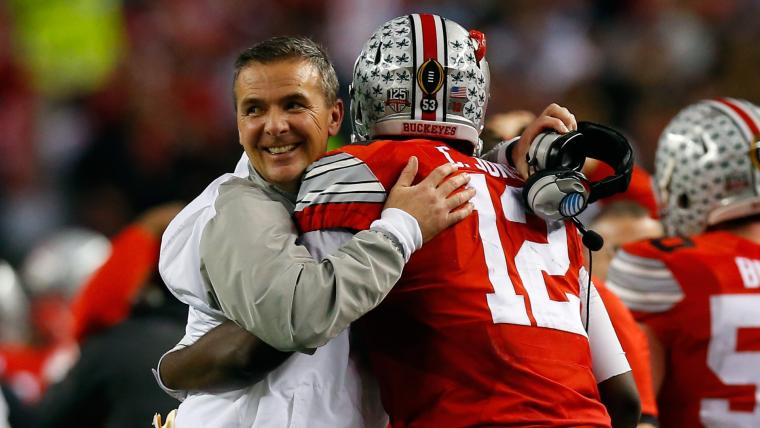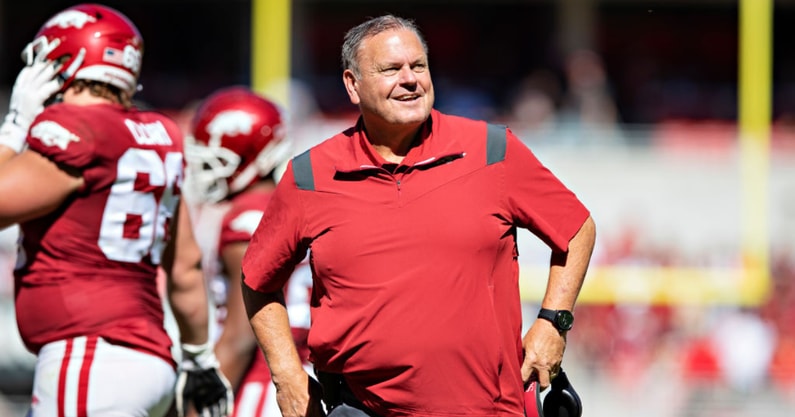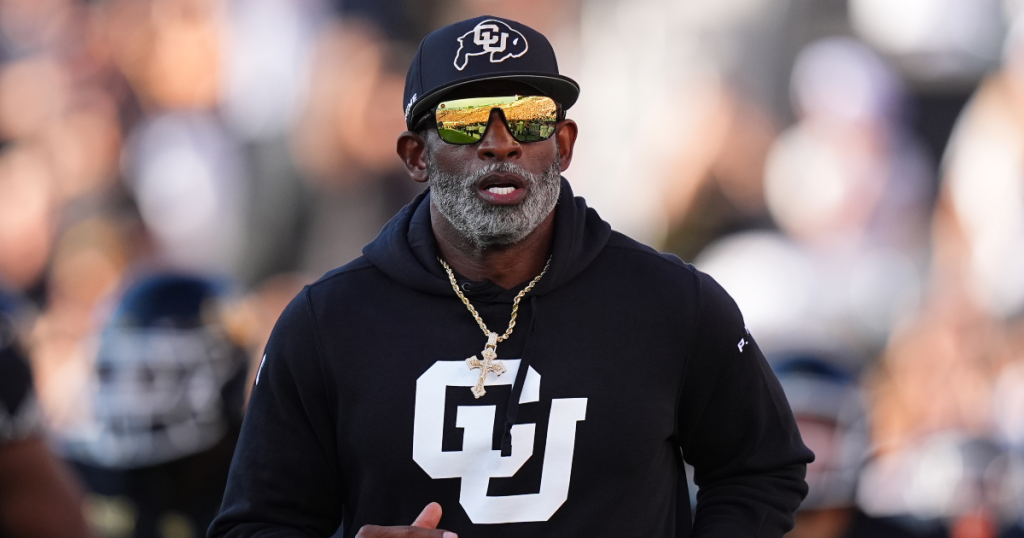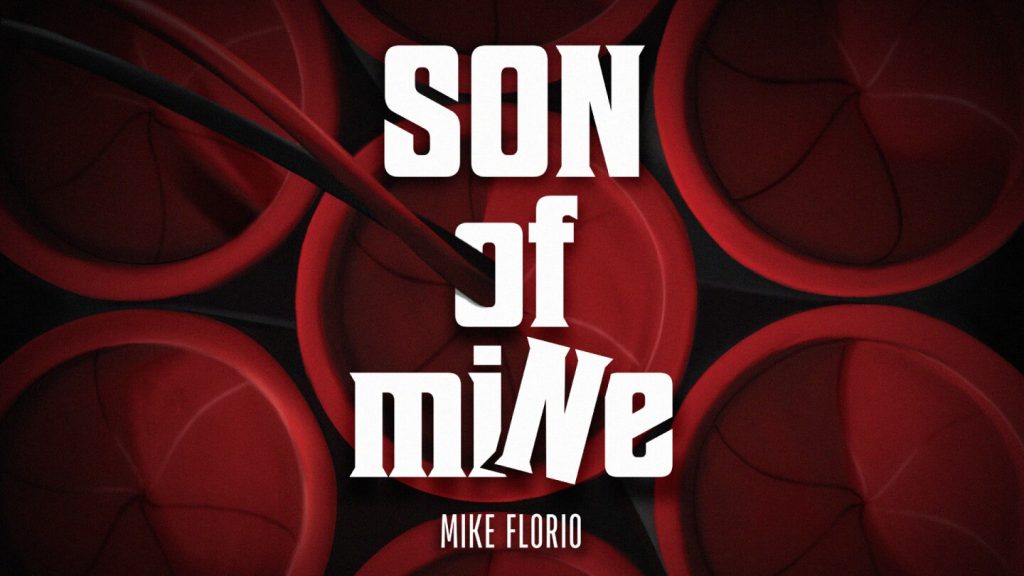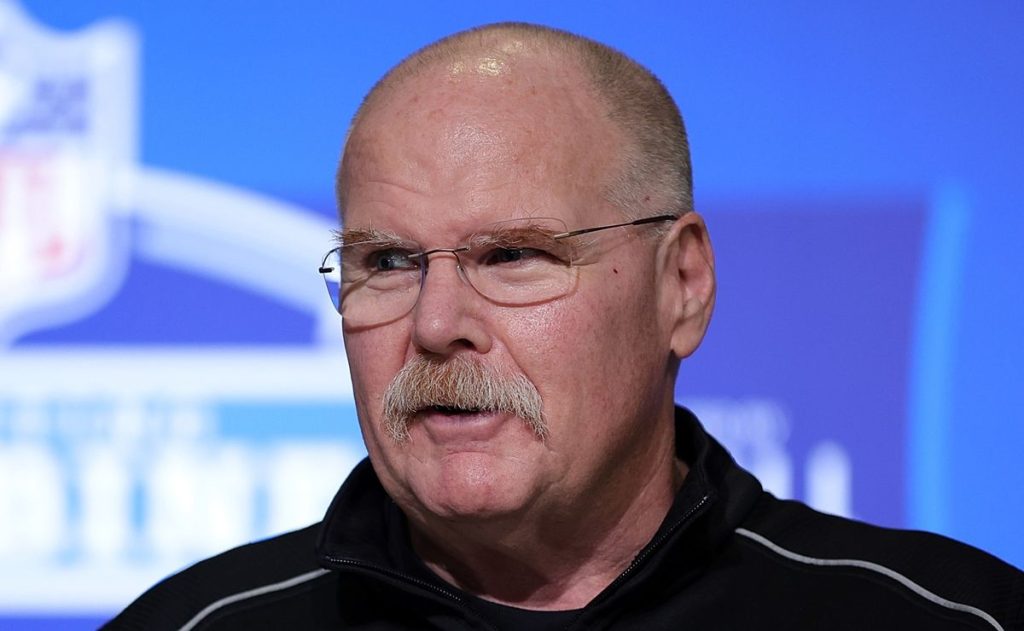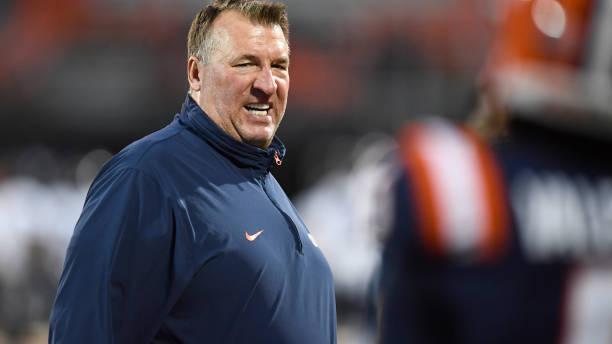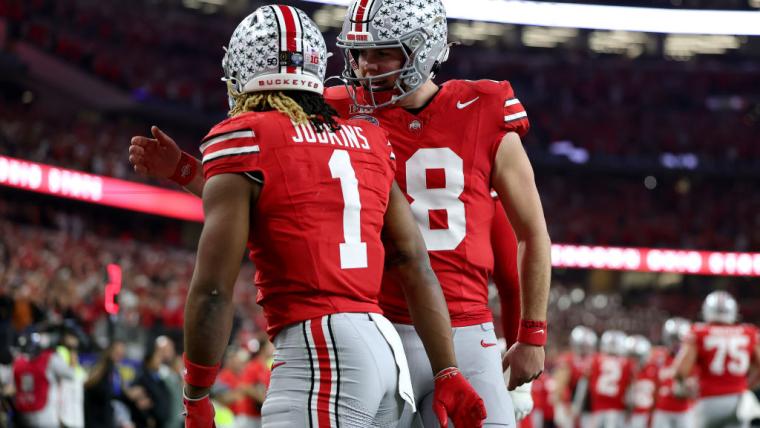The excitement is palpable as we gear up for the inaugural 12-team College Football Playoff! This new format brings with it a thrilling opportunity for teams to vie for the national championship, especially for those with long-standing droughts. Four teams in particular are eager to break their championship dry spells of 10 years or more. Who will seize the moment and claim the first title of this new era?
Let’s take a closer look at the contenders. Ohio State, the current favorite, last tasted national championship glory in 2014—marking the beginning of the four-team playoff system. Meanwhile, Michigan, Ohio State’s fierce rival, celebrated its first national title in 26 years just last season, showcasing the fierce competition within the Big Ten. Texas, another powerhouse, last won in 2005 during the BCS era, while Notre Dame has been waiting since 1988 and Penn State since 1986. These storied programs have rich histories, and their fans are hungry for another shot at glory.
Understanding the Championship Landscape
When it comes to national championships, the Poll Era began in 1936, and since then, several teams have etched their names in history. The AFCA National Championship Trophy, established in 1945, and the Grantland Rice Trophy, introduced in 1954, have also played roles in determining champions. So, where does your school stand in this historical context?
Let’s delve into the national championship teams since the Poll Era to see how these programs have fared over the years.
Recent Champions
Michigan (2023)
Michigan made headlines last season by securing its first national championship since 1997, defeating Washington 34-13 in the final CFP championship of the four-team era. Under the guidance of Jim Harbaugh, a former quarterback for the Wolverines, the team achieved a perfect 15-0 season—a remarkable feat!
Georgia (2022)
Georgia showcased its dominance by winning back-to-back national championships. The Bulldogs obliterated TCU 65-7 in the 2023 College Football Playoff championship, marking Kirby Smart’s second title. They broke a 41-year drought the previous year with a 33-18 victory over Alabama.
Alabama (2020)
Alabama, under the legendary Nick Saban, claimed its sixth national championship with a 52-24 win against Ohio State in the 2021 College Football Playoff national championship game. The team featured Heisman Trophy winner DeVonta Smith and six consensus All-Americans, solidifying their legacy.
LSU (2019)
Joe Burrow’s Heisman-winning season led LSU to its fourth national championship in a thrilling 42-25 victory over Clemson. Burrow’s performance was nothing short of spectacular, throwing for 463 yards and five touchdowns.
Clemson (2018)
Clemson made history by defeating Alabama 44-16 in the 2019 College Football Playoff championship, becoming the first team to finish a season 15-0 since 1897. This victory marked the Tigers’ second national championship in three seasons under Dabo Swinney.
Ohio State (2014)
The Buckeyes captured their first national title since 2002 in the inaugural College Football Playoff national championship game, defeating Oregon 42-20 under Urban Meyer’s leadership.
Florida State (2013)
Jameis Winston led Florida State to its final BCS championship, beating Auburn 34-31. This victory marked the program’s first national title since 1999, closing the chapter on the BCS era.
Auburn (2010)
Cam Newton’s incredible season propelled Auburn to a national championship, culminating in a 22-19 win against Oregon in the BCS championship game.
Texas (2005)
Vince Young’s legendary performance in the 2006 Rose Bowl secured Texas a national title with a thrilling 41-38 victory over USC, capping an undefeated season.
USC (2004)
Although this national championship was vacated by the Coaches Poll and BCS, USC’s on-field victory against Oklahoma (55-19) remains a significant moment in college football history.
Miami (2001)
The Hurricanes dominated the 2001 season, finishing 12-0 and defeating Nebraska 37-14 in the Rose Bowl, marking their fifth national championship since 1983.
Oklahoma (2000)
In Bob Stoops’ second season, Oklahoma claimed the national title by defeating Florida State 13-2 in the BCS championship game.
Tennessee (1998)
Tennessee kicked off the Bowl Championship Series era with an undefeated season, defeating Florida State 23-16 in the Fiesta Bowl to secure the national championship.
Nebraska (1997)
In Tom Osborne’s final season, Nebraska finished 13-0 and claimed a split national championship, defeating Tennessee 42-17 in the Orange Bowl.
Washington (1991)
Led by Steve Emtman, Washington won the Coaches Poll in 1991 after an undefeated season, capped by a 34-14 victory against Michigan in the Rose Bowl.
Colorado (1990)
Despite an early loss, Colorado bounced back to win the AP national championship, defeating Notre Dame 10-9 in the Orange Bowl.
Georgia Tech (1990)
Bobby Ross led Georgia Tech to the Coaches Poll national championship after an impressive 11-0-1 season, finishing with a 45-21 victory against Nebraska in the Orange Bowl.
Notre Dame (1988)
Lou Holtz guided the Irish to an undefeated season, highlighted by a thrilling 31-30 victory against Miami, and capped with a 34-21 win over West Virginia in the Fiesta Bowl.
Penn State (1986)
Joe Paterno’s Nittany Lions finished 12-0, securing their second national championship with a 14-10 victory against Miami in the 1987 Fiesta Bowl.
BYU (1984)
Under LaVell Edwards, BYU enjoyed a fantastic season, becoming the last Group of 5 school to win a national title with a 24-17 win against Michigan in the Holiday Bowl.
Pitt (1976)
The Panthers, led by Johnny Majors and Tony Dorsett, claimed the national championship after a perfect 12-0 season, highlighted by a 27-3 win against Georgia in the Sugar Bowl.
Michigan State (1965)
Michigan State won the Coaches Poll in 1965 with a 10-0 record, although they lost the Rose Bowl to UCLA.
Teams with Long Droughts
As we look forward to the upcoming playoff, it’s essential to remember the teams still waiting for their moment in the sun. Programs like Arkansas, Ole Miss, Minnesota, and Syracuse have not won national championships in over 60 years. The anticipation builds as fans wonder: which of these storied programs will rise again?
With the new 12-team playoff format, the landscape of college football is changing. Will we see a new champion emerge, or will one of the traditional powerhouses reclaim its throne? The stage is set, and the excitement is just beginning. Who will break the drought? Only time will tell!

